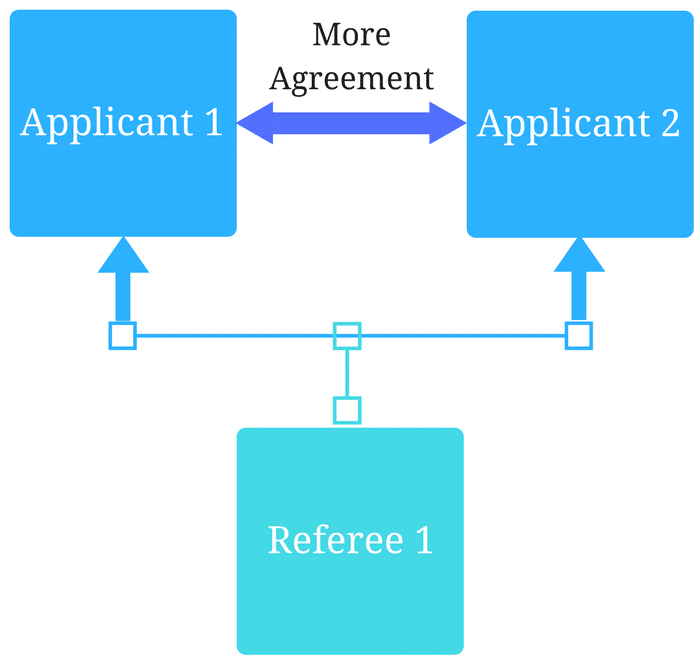Empowering Programs: A Guide to Harnessing Residency Match Data

February 1, 2024
As we’ve discussed previously on the show, higher education programs are often drowning in the data that they collect. Whether it’s locked up in silos and inaccessible to other parts of the institution, or the sheer amount of data simply overwhelms administrative resources, the problem is not going away.
This week on the Holistic Success Show we welcome back Adam Tarnowsky, Senior Product Manager of Analytics at Acuity Insights, to share how a comprehensive data integration platform like Acuity’s Analytics could be the solution for these data woes.
Read on to get a better handle on your data and propel your program into a future that takes the guesswork out of the equation.
What is a comprehensive data integration platform?
In our previous episode with Adam, he laid out the challenges facing institutions that have a huge volume of data spread out across multiple segments. In order to harness the power of the data, it’s critical that programs find a way to bring it all together into one comprehensive data integration platform.
To break it down, a comprehensive data integration platform is a tool that is:
- Comprehensive – it manages different data over multiple systems and silos.
- Integrating – the data is accessible on a unified platform. Users can see visualizations and dashboards on their data. MSPE letters can be generated using the MSPE letter generational tool. It creates a solid foundation for exploring and making the best use of all the data your institution might have spread across many different sources.
In other words, you won’t have to be worried about whether or not your Excel spreadsheet is up to date, or if you have the right login permissions for data you need to use every day, every week, or every month. With that in mind, let’s look at residency match data and see what the comprehensive data integration platform offers programs and learners.
What is Analytics by Acuity Insights?
Analytics is a comprehensive data integration platform for Health Professions programs that integrates data from multiple key systems to drive insights that empower improved student and program outcomes. Analytics integrates with systems that many health sciences programs are already using, such as Blackboard Learn, Canvas, OASIS, NBME, ExamSoft, and more. – to bring all your key education performance data together for a complete picture.
What is residency match data?
During the first four years of undergraduate medical education, learners are exposed to a variety of different clinical settings, giving them a taste of what field they want to specialize in as a doctor. From here, they go on to complete a residency program in that field. It’s perhaps the biggest moment for an undergraduate medical education student, the jumping off point of their career.
So how do you match the right learner to the right residency? This is a high stakes decision, and programs want to take into account learner’s preference, academic record, as well as the institution or program they want to apply for. In the US, students typically apply for residency through the National Residency Match Program (NRMP). During Match Week, which happens in early March, NRMP releases these matches of students to their residencies. Certain residencies receive more applications than others, and those students go through an additional process called the Supplemental Offer and Acceptance Program (SOAP), which gives them the chance to explore secondary opportunities.
Given how important these matches are to a learner’s career, it’s very important for programs to make sure that they’re preparing their students for that match. So how can a comprehensive data integration platform help with the task?
How do you effectively use residency match data with Analytics?
Analytics provides a durable and comprehensive solution – allowing data to be stored, organized, and easily accessible and analyzed.
Through using this platform, programs can access a “historical view” of residency match data, building year over year their understanding of their learners, their graduates, and how they are best served by the institution. This data empowers continuous quality improvement by allowing for actionable data, because this historical data is specific to the program and its learners. Where the NRMP provides reports that speak to a broad national pool, Analytics allows for reports that are tailored to the specific needs of the program.
For example, programs can advise learners early on in their undergraduate medical education journey by reviewing data that shows what students from their program typically require academically in order to match on the learner’s preferred speciality or GME institution.
Different programs have different goals, and what they’re looking for in students might not match the national pool. In our previous interview with Dr. Brigham C. Willis, the Founding Dean of the University of Texas at Tyler School of Medicine, he spoke passionately about creating a school focused on lifting up local talent and retaining that talent in the area after graduation. These students didn’t have the same experiences and education that other schools might be looking for, and the program wouldn’t be served by judging their applications that way. Through the use of Analytics, a program can cut through the noise of data points to focus on what is truly important and reflective of their mission.
How do programs benefit?
By using a comprehensive data integration platform to manage residency match data, programs can expect the following benefits:
- Improved data that harnesses all the data points collected over disparate sections, unifying them in an accessible, usable form.
- Specific historical data that aids continuous quality improvement, as it is unique to the program, instead of data provided by larger bodies that do not provide a level of specificity.
- Increased transparency for learners and programs. With historical data of previous years and cohorts, programs are not only better able to support students, but give them data driven, practical advice about how to proceed.
Takeaways for programs and advisors
The Match is a critical moment for both learner and program. Sometimes it’s not about having more data – we already know programs can be swamped by the amount of data they collect – but having existing data accessible and easy to analyze.
Analytics provides the following solutions to programs’ data warehousing needs:
- With Analytics you gain a longitudinal view of residency match data, one that is historical to your program and specific to your needs.
- Analytics offers the convenience of data accessibility – allowing for faster and more accurate analysis.
- Analytics is ready to go, with pre-built dashboards, visualizations, and common key KPIs already included.
Book a demo to discover more about the Analytics solution and check out the full episode.
Related Articles

How interviews could be misleading your admissions...
Most schools consider the interview an important portion of their admissions process, hence a considerable…
Reference letters in academic admissions: useful o...
Because of the lack of innovation, there are often few opportunities to examine current legacy…
